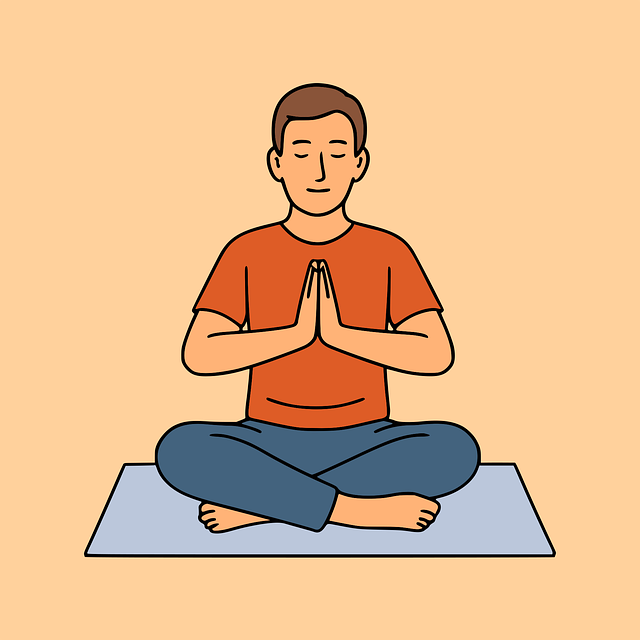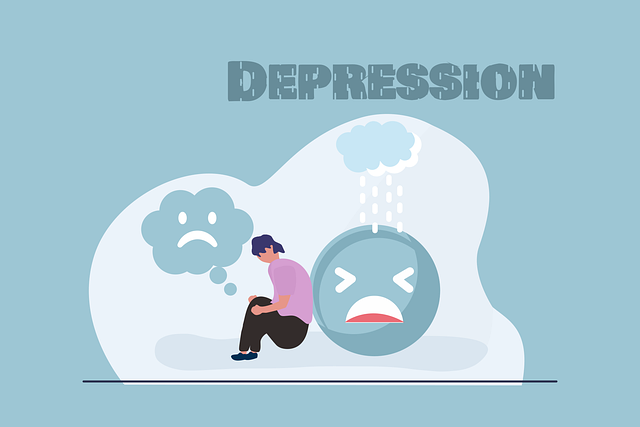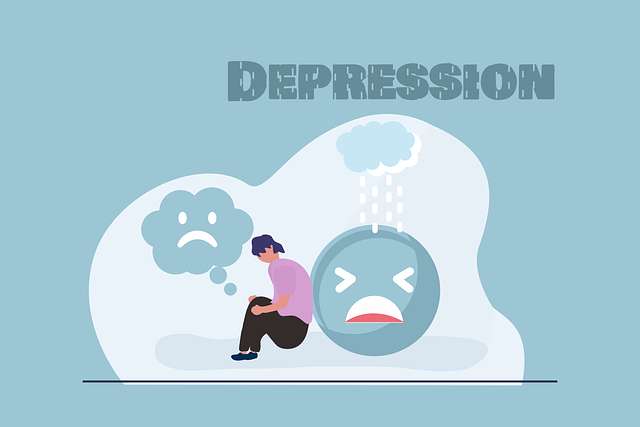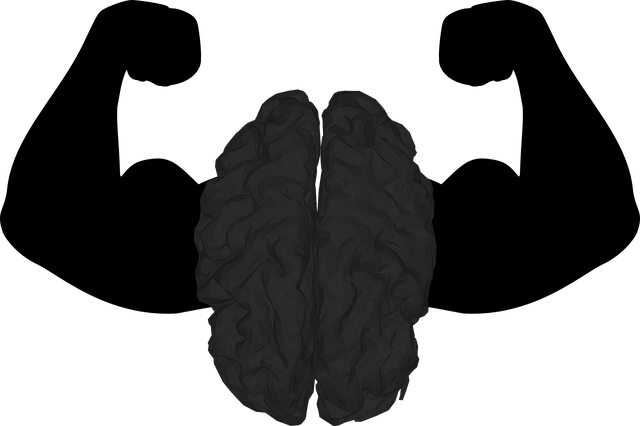In Northglenn, Oppositional Defiance Disorder (ODD) therapy leverages the Risk, Resilience, and Strengths Model (RFM) to enhance well-being. This structured approach combines tailored exercises like Social Skills Training, Stress Reduction, and public awareness campaigns to equip individuals with robust coping tools. Through evidence-based practices, one-on-one sessions, and structured activities, clients develop life skills, improve social interactions, and foster emotional resilience. The collaborative effort involves community resources, Compassion Cultivation, Confidence Boosting techniques, and a Mental Wellness Podcast Series. Tailored resilience-building exercises incorporate storytelling, role-playing, and creative expression to challenge negative thought patterns and boost self-esteem. Regular goal setting, assessment tools, and check-ins ensure personalized support and continuous refinement of strategies for improved overall well-being.
“Unleashing resilience through innovative practices, particularly in addressing Oppositional Defiance Disorder (ODD), is a growing focus in mental health. This article delves into the powerful tool of RFM (Resilience, Flexibility, and Mastery) and its implementation via Northglenn Oppositional Defiance Disorder Therapy. We explore how tailored exercises can enhance resilience, offering a comprehensive approach to treatment. By identifying necessary resources and designing effective activities, therapists can guide individuals toward better coping mechanisms. Moreover, we emphasize the importance of measuring progress and adjusting strategies for optimal results in managing ODD.”
- Understanding RFM and Its Role in Resilience Building
- Northglenn Oppositional Defiance Disorder Therapy: A Comprehensive Approach
- Identifying Resources for Effective Implementation
- Designing Exercises to Strengthen Resilience
- Measuring Success and Adjusting Strategies
Understanding RFM and Its Role in Resilience Building

Resilience is a crucial factor in an individual’s overall well-being and mental health. For those dealing with oppositional defiance disorder (ODD), like many individuals in Northglenn, building resilience can be transformative. RFM, or Risk, Resilience, and Strengths Model, offers a structured approach to understanding and enhancing resilience. This model recognizes that individuals, especially those facing challenges such as ODD, possess inherent strengths that can be cultivated to navigate life’s difficulties. By identifying these strengths and learning effective coping strategies, individuals can build resilience, enabling them to manage stress, improve their emotional well-being, and enhance their ability to cope with adversity.
Implementing RFM in therapy sessions or support groups can involve various exercises tailored to each individual’s needs. These activities may include Social Skills Training to foster healthier interactions and relationships, Stress Reduction Methods to teach relaxation techniques, and Public Awareness Campaigns Development to encourage open dialogue about mental health. Through these initiatives, individuals with ODD can develop a robust coping toolkit, enhancing their resilience and overall quality of life.
Northglenn Oppositional Defiance Disorder Therapy: A Comprehensive Approach

In Northglenn, Oppositional Defiance Disorder (ODD) Therapy has emerged as a comprehensive approach to addressing behavioral challenges in children and adolescents. This therapeutic method goes beyond traditional treatments by integrating various strategies tailored to each individual’s unique needs. The primary focus is on promoting emotional well-being, fostering positive relationships, and enhancing coping mechanisms. Through a combination of evidence-based practices, therapists aim to improve impulse control, frustration tolerance, and overall mental wellness.
The Northglenn ODD Therapy program incorporates effective techniques such as behavioral therapy, cognitive-behavioral interventions, and mental wellness coaching programs. These methods help individuals develop essential life skills, boost confidence, and manage their emotions constructively. By participating in structured activities and one-on-one sessions, clients learn to navigate social interactions more effectively, thereby improving their relationships and overall resilience. This holistic approach ensures that the root causes of ODD are addressed, enabling a lasting impact on personal growth and mental wellness coaching.
Identifying Resources for Effective Implementation

Identifying Resources for Effective Implementation
In implementing RFM and resilience-building exercises, especially tailored for Northglenn Oppositional Defiance Disorder (ODD) Therapy, a comprehensive approach is essential. The first step involves assessing available resources within the community and healthcare sector. Local support groups, mental health clinics, and schools can be valuable partners in providing diverse learning environments and fostering a sense of belonging among participants. Additionally, leveraging Compassion Cultivation Practices has shown promise in enhancing emotional regulation and reducing behavioral challenges often associated with ODD.
The integration of Confidence Boosting techniques within these exercises further empowers individuals to navigate life’s challenges more effectively. To amplify the impact, consider the Mental Wellness Podcast Series Production as a means of disseminating insights and strategies gained from the RFM implementation. This multimedia approach not only reaches a broader audience but also offers a flexible and engaging way to reinforce resilience-building concepts.
Designing Exercises to Strengthen Resilience

When designing resilience-building exercises for individuals with Northglenn Oppositional Defiance Disorder (ODD), it’s crucial to tailor activities that foster adaptability and emotional regulation. These exercises should go beyond traditional therapy methods, offering engaging and interactive experiences that cater to diverse learning styles. Incorporating elements from the Mental Wellness Podcast Series Production can be a game-changer. By weaving storytelling, role-playing, and creative expression into sessions, therapists enable clients to explore different scenarios, practice coping strategies, and build self-confidence in a safe environment.
Self-esteem improvement is another key aspect that should be addressed. Exercises focusing on positive affirmations, goal setting, and achievement can help individuals with ODD challenge negative thought patterns and boost their sense of worth. These activities should be designed to encourage participation, providing opportunities for clients to take ownership of their mental wellness journey while navigating the complexities of oppositional defiance.
Measuring Success and Adjusting Strategies

Measuring success and adjusting strategies are integral parts of any effective RFM implementation process, especially when addressing Northglenn Oppositional Defiance Disorder (ODD) Therapy. The journey to building resilience in individuals with ODD requires a tailored approach, where progress is meticulously tracked. This involves setting clear goals and utilizing various assessment tools to gauge the success of implemented exercises and programs. For instance, regular check-ins with participants can provide valuable insights into their emotional intelligence development and overall mental health.
Through these assessments, therapists and care providers can identify areas of improvement and make necessary adjustments to strategies. Incorporating practices like mindfulness meditation and emotional regulation techniques can significantly contribute to the design of Mental Health Education Programs. By continuously evaluating and refining approaches, Northglenn ODD Therapy ensures that each individual receives personalized support, fostering their resilience and overall well-being.
Implementing RFM (Resilience, Flexibility, and Mastery) exercises, as demonstrated by Northglenn Oppositional Defiance Disorder Therapy, offers a comprehensive framework for building resilience. By identifying available resources and designing targeted activities, professionals can effectively foster adaptability and coping skills in individuals. Measuring success through regular assessment allows for strategic adjustments, ensuring tailored support. This approach not only enhances overall well-being but also equips folks with valuable tools to navigate life’s challenges, making it a significant step towards a more resilient future.












